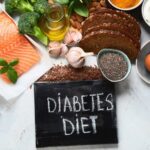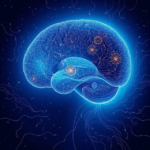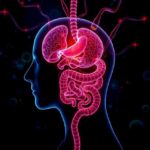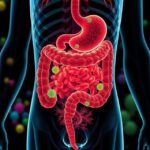In today’s fast-paced world, where processed foods and convenience diets dominate, the concept of “food is medicine” is more relevant than ever. The age-old wisdom that what we eat directly impacts our physical, mental, and emotional well-being is now backed by modern science. Food doesn’t just fuel the body—it has the power to heal, prevent diseases, and support holistic health.
In this comprehensive blog post, we’ll explore how food can act as medicine, delve into nutritional science, identify healing foods, and guide you on building a health-boosting diet tailored for longevity and vitality.
Why Food is Medicine: The Science Behind It
The phrase “food is medicine” isn’t a metaphor; it’s a literal truth supported by decades of scientific research. Food affects the body on a cellular level, influencing gene expression, hormone balance, inflammation, gut health, and immune function.
Key Points:
Nutrients Are Bioactive Compounds: Vitamins, minerals, phytonutrients, and antioxidants regulate essential biological functions.
Gut-Brain Connection: A healthy gut microbiome (supported by fiber-rich foods) can improve mood, focus, and immune response.
Inflammation Control: Whole foods like berries, turmeric, and leafy greens can reduce chronic inflammation, a root cause of many diseases.
Health Conditions Prevented or Improved by Nutritional Healing
Medical studies have shown that dietary changes can help prevent and even reverse several chronic diseases:
| Condition | Healing Foods | Effect |
|---|---|---|
| Heart Disease | Oats, flaxseeds, olive oil, walnuts | Lower cholesterol and improve heart health |
| Diabetes | Whole grains, legumes, cinnamon | Stabilize blood sugar levels |
| Cancer | Cruciferous vegetables, garlic, green tea | Contain anti-cancer compounds |
| Obesity | Leafy greens, berries, lean proteins | Support weight management |
| Depression | Omega-3 rich foods (salmon, chia seeds) | Improve brain health and mood |
Functional Foods: Nature’s Pharmacy
Functional foods go beyond basic nutrition and provide health benefits that can reduce the risk of disease and promote optimal health.
Examples of Functional Foods:
Garlic – Natural antibiotic, lowers blood pressure.
Ginger – Anti-inflammatory and digestive support.
Turmeric (Curcumin) – Powerful anti-inflammatory and antioxidant.
Fermented Foods (Yogurt, Kimchi, Sauerkraut) – Rich in probiotics for gut health.
Berries – Packed with antioxidants that protect against cellular damage.
Leafy Greens – High in folate, calcium, and magnesium for bone and heart health.
Food as Medicine vs. Pharmaceuticals
While pharmaceuticals treat symptoms, food addresses root causes. Both have their place, but using food as medicine offers several advantages:
Fewer side effects
Cost-effective long-term
Supports overall wellness
Empowers individual control over health
That said, food-based healing should complement—not replace—medical treatment when necessary. Always consult a healthcare provider before making major dietary changes if you have existing conditions.
Healing Diets Around the World
Many cultures have long embraced food as medicine. Here are some time-tested examples:
1. Ayurvedic Nutrition (India)
Balances the three doshas (Vata, Pitta, Kapha) through diet.
Emphasizes seasonal, organic, and warm-cooked foods.
2. Mediterranean Diet
Rich in olive oil, fruits, fish, and legumes.
Linked to reduced risk of heart disease and Alzheimer’s.
3. Traditional Chinese Medicine (TCM)
Uses food energetics to balance yin and yang.
Includes healing broths, herbs, and seasonal vegetables.
4. Blue Zone Diets (Okinawa, Sardinia, etc.)
Plant-heavy diets with legumes, whole grains, and fermented foods.
Associated with high longevity and low disease rates.
How to Build a Healing Plate: Food as Medicine Daily
1. Start with Whole, Unprocessed Foods
Avoid packaged and heavily processed foods that contain artificial additives, trans fats, and excessive sugar.
2. Balance Macronutrients
Protein: Lean meats, legumes, tofu
Healthy Fats: Avocados, nuts, seeds
Complex Carbohydrates: Whole grains, starchy vegetables
3. Add Anti-inflammatory Foods
Include:
Berries
Leafy greens
Turmeric
Ginger
Green tea
4. Hydrate with Purpose
Drink water throughout the day.
Herbal teas (like tulsi, chamomile, peppermint) have therapeutic benefits.
5. Spice it Right
Spices like cumin, coriander, cinnamon, fennel, and black pepper add flavor and healing.
Food and Mental Health: The Mood-Boosting Connection
Food significantly impacts mental well-being. The gut and brain are connected through the gut-brain axis, meaning what you eat can influence how you feel.
Mood-Boosting Foods:
Dark chocolate – Increases serotonin.
Fatty fish – High in omega-3 fatty acids that fight depression.
Bananas – Boost dopamine and serotonin production.
Fermented foods – Balance gut bacteria and reduce anxiety.
Food Myths Debunked
Many myths confuse people about what is healthy. Let’s bust a few:
Myth: Fats are bad.
Truth: Healthy fats are essential for brain and heart health.Myth: Carbs make you fat.
Truth: Whole carbs like oats and quinoa support metabolism.Myth: Supplements are enough.
Truth: Real food provides complex nutrients not found in pills.
Tips for Making Food Your Medicine
Shop Smart: Buy fresh, seasonal, and local produce.
Meal Prep: Plan meals to avoid impulsive, unhealthy eating.
Mindful Eating: Eat slowly and without distractions.
Grow Your Own Herbs: Basil, mint, and turmeric are easy and healing.
Stay Informed: Read nutrition labels and follow credible sources.
A Day of Healing Meals – Sample Meal Plan
Morning
Warm lemon water with ginger
Oatmeal topped with berries, chia seeds, and honey
Mid-Morning Snack
Handful of almonds and walnuts
Lunch
Quinoa salad with leafy greens, chickpeas, olive oil dressing
Fresh curd with cumin
Evening Snack
Herbal tea with a small banana
Dinner
Steamed vegetables, lentil soup, and brown rice
Turmeric milk before bed
Final Thoughts: Your Body is a Temple – Feed It Wisely
Every bite we take is a step toward health or disease. While we often look for cures in pharmacies, the real magic lies in our kitchens. Embracing food as medicine doesn’t mean adopting extreme diets—it means being intentional, informed, and compassionate toward our bodies.
By prioritizing nutrient-rich, natural foods and ditching harmful habits, we can achieve better physical, emotional, and spiritual health.
Remember, healing doesn’t come from a single meal, but from the consistent practice of nourishing your body with love and wisdom. So next time you cook, ask yourself: Is this food feeding disease or feeding wellness?
Related posts:
 The Healing Power of Nature: How Green Spaces Improve Mental Health
The Healing Power of Nature: How Green Spaces Improve Mental Health
 Nutrition for Diabetes Management: Best Diet Strategies for Blood Sugar Control
Nutrition for Diabetes Management: Best Diet Strategies for Blood Sugar Control
 Unlocking the Secrets of Sleep: How Sleep Physiology Shapes Brain Function
Unlocking the Secrets of Sleep: How Sleep Physiology Shapes Brain Function
 Impact of Blue Light & Screen Time on Eye Health and Sleep | Digital Wellness Tips
Impact of Blue Light & Screen Time on Eye Health and Sleep | Digital Wellness Tips
 How Stress Affects Digestion – Gut Health & Mental Wellness Connection
How Stress Affects Digestion – Gut Health & Mental Wellness Connection
 The Role of Gut Microbiome in Overall Health: The Hidden Ecosystem Within You
The Role of Gut Microbiome in Overall Health: The Hidden Ecosystem Within You
